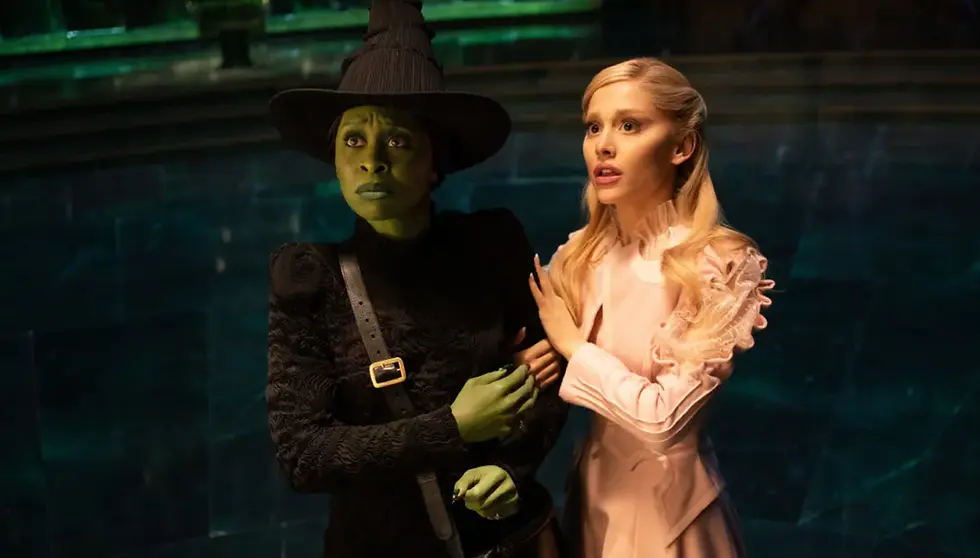Village Idiot - Theatre Royal Stratford East
- comaweng
- Apr 20, 2023
- 4 min read

The show’s programme is presented as an edition of The Syresham Times – there is an actual quarterly magazine of that name, established in 1990. The latest edition (at the time of writing) of the real magazine contains, amongst other things, a resident’s article about their thirty-nine years in the village to date, a ‘Brownies report’, two lengthy obituaries of pillars of the community, miscellaneous advertisements for local businesses – and an article by the play’s author, which begins: “Hello, I’m Sam Hawkins. You may remember me as Alan’s son or possibly as Les’s grandson.” He goes on to write in his invitation to readers to come to see the show, “Often rural people are sometimes viewed as less intellectual or less enlightened by people in cities, and I wanted to challenge that in the play.”
I’m not entirely convinced intellectuality comes into the narrative very much in the first place, either way, in Village Idiot, despite the show’s title, though there is an element of snobbery towards Peter (Philip Labey), who left Syresham to attend university, before going into the world of work. His current job brings him back to the area, playing his part in – wait for it – the literal destruction of Syresham, in the name of progress. Compulsory purchase orders have been made, and while objections have been made, the CPOs have been ‘confirmed’, the villagers have no choice but to sell up and move out, though claims for compensation can be made.
There’s almost always one who won’t be persuaded and refuses to budge. Here, it’s Barbara (Eileen Nicholas), Peter’s grandmother, forthright in her views. Indicative of the sort of humour that permeates proceedings throughout is her inability to recall if she has indeed taken her memory medication (sigh), and the production seems to revel in its shock factor, with even the unassuming Stratford East press night audience gasping on multiple occasions. No wonder there’s a ‘chill out room’ upstairs for anyone who needs to take a few minutes. A few of the putdowns seem unnecessarily cruel, and if it really is representative of how country folk speak to one another, I’m not inclined to give up living in London any time soon.
Then again, perhaps the play is trying to suggest that villagers are not that different from city dwellers. There’s a very generous amount of strong language, for instance, and parts of the ‘eff, cee and effing cee’ dialogue might as well be verbatim quotes from an argument in a suburban street. It’s repetitive: that amount of swearing ultimately doesn’t make for great theatre, if only because one becomes somewhat desensitised rather quickly, and whatever impact the first few expletives might have had isn’t sustained to the end of the first half, let alone the second.

Barbara’s other grandson, Kevin (Maximilian Fairley) falls in love with another villager, Debbie (Faye Wiggan), whose comic lines are delivered with such a deadpan manner that it’s a) a hoot and b) a refreshing contrast to the shouting from elsewhere. The former is neurodivergent, and the latter, as Peter insensitively points out in a late scene, has a learning disability. Barbara may treat her like [insert yet another expletive], Debbie retorts, but she does so to her face – Peter, on the other hand, talks about her as though she is not there. Debbie’s father Kevin (Mark Benton) turned out to be more open-minded than others initially portrayed him to be, and then there’s Liam (Joseph Langdon), an impressionable young man still discovering his true identity.
The show’s acquired sense of humour provides laughs-a-minute, whilst portraying more serious struggles various characters have with contemporary issues like personal identity and disability rights. The latter is tackled with great aplomb, with Kevin asserting that if apparently vulnerable people like him and Debbie need ‘protection’, perhaps it is the people who they need protecting from that should have their movements and rights restricted instead. Rather less successful are jibes at the royals and former royals, uninteresting for those like me who don’t pay much attention to what they get up to, and potentially offensive for those who do.

A late scene gets rather preachy about environmental issues, which was an unnecessary add-on, given an earlier musical interlude in the form of a conscientious rap. That this is a play with songs at all is largely down to the backdrop of a village fair – and for all the swearing and incivility elsewhere, seeing a unique take on Cher’s ‘If I Could Turn Back Time’, as well as a thoroughly convincing magic act, almost makes up for the show needing some trimming. It isn’t punishingly overlong, but the story could be told in considerably less time than it takes in its current form. In the end, however, it’s refreshing to see a show unafraid of causing outrage. Provocative and controversial, there’s plenty to talk about on the way home.
Three stars
At Theatre Royal Stratford East until 6 May 2023.
Photo credit: Marc Brenner




Comments